Blue Band is the most popular brand of margarine this part of the world. Many, including yours truly, have grown up using the brand as the preferred spread for our favourite breakfast starch: bread. The margarine is manufactured by Unilever, a global company of a variety of consumer goods that can be found in shelves worldwide.
Unilever markets Blue Band in a way that implies the margarine is healthy. In particular, the brand targets school going children or rather capitalizes on the message that the margarine promotes growth at this developmental stage.
Blue Band Margarine
The brand is marketed in two forms: the medium fat Original Blue Band that can be used for cooking, baking and spreading and the low fat Blue Band Spread that’s to be used only as a spread (for bread and the like). On whether the majority of Blue Band consumers are aware of this subtle distinction remains debatable.
What is Blue Band Made of?
Before we can answer the question that this article is built around, we need to take a look at what makes Blue Band a margarine.
Margarine as you may or may not know was formulated as a substitute for Butter. This happened in 1860’s France after Emperor Napoleon III sponsored a contest to a find a cheaper alternative to butter for his soldiers and the French lower class.
While Butter is made from milk (explaining its rather luxury status) margarine is made from vegetable oils. Blue Band is specifically made from palm oil, though margarines can be made from other vegetable oils. Most cooking vegetable oils in the market are likewise made of palm oil.
The remaining ingredients in Blue Band Original include:
- canola oil (the edible form of rapeseed oil),
- water
- salt
- skimmed milk
- emulsifiers (lecithin)
- preservatives
- artificial flavours and colours
In addition to this, it’s fortified with some vitamins (more on fortification later).
Processing is what’s responsible for putting these ingredients together into the final product we are all familiar with. Of particular interest is a process called Hydrogenation and the addition of emulsifiers.
Hydrogenation is what’s responsible for making the oils remain solid at room temperature thereby preventing them from going bad and as a result increasing the product’s shelf life. Partial hydrogenation however comes at a cost of producing unhealthy trans fats as a by-product.
Note however that it’s unclear whether Blue Band is manufactured through this specific method. Other processing methods do exist that can achieve the same purpose as that of hydrogenation without the downside of production of trans fats.
Emulsifiers on the other hand are added for a reason that you are very well aware of from your daily life. Remember one of our ingredients was water, and as you know, oil and water do not mix. For this reason, emulsifiers are added to prevent the two from separating.
Blue Band uses an emulsifier called lecithin which is usually commercially extracted from Soy.
Why Doesn’t Blue Band Spread “Dissolve” in Hot Water?
Apparently there was a video in circulation showing Blue Band Spread (variant with light blue cap) not dissolving in hot water. Naturally it went viral and the hysteria from that realization has led many to mistakenly conclude that Blue Band is closer to a “plastic” than a food.
The further realization that margarine was the result of some ingenious lab work left the commodity with little redeeming qualities. The video that had originated from Nigeria had such a significant impact that Unilever Nigeria found it compelling enough to do some damage control in the way of a press release that clarifies the reasons behind the strange phenomena.
According to Unilever, Blue Band Spread is a low fat margarine, a quality (desirable no less) that renders it less stable than the original variant which it classifies as medium fat. To be able to withstand the same conditions that its counterpart is subjected to during distribution, Unilever uses the aforementioned emulsifiers to keep the product stable at high temperatures.
Otherwise we should presume the product would melt/go bad and thus fail to meet acceptable quality standards.
The emulsifiers used are likewise from plant sources however we can safely presume the mix or proportions in which they’re used is different to such an extent it makes it more stable than the Original variant in higher temperatures. A food scientist would be better equipped to expound on this matter.
The video is therefore just another case of misinformation. Nevertheless, this whole event is not without its positives as people are now asking questions.
Does Blue Band Contain Saturated Fats?
Butter is not only expensive but over the years it has lost much of its popularity due to its high levels of saturated fats. Saturated fats have traditionally been shown to increase the bad cholesterol (LDL) making them a risk for cardiovascular diseases. This has however come it close scrutiny in the recent past with some quarters challenging this long-held assertion.
Nevertheless, general recommendations from government bodies and health organizations such as the American Heart Association still hold that foods high in saturated fats should be limited.
But going back, as a result of this revelation Margarine was championed as a healthier alternative to Butter due to its comparatively lower levels of saturated fats. This is because margarine is made from vegetable oils that have less saturated fats compared to those from animal sources.
Therefore, to answer the first question: margarine does indeed have saturated fats but their levels are ultimately dependent on the vegetable oil used.
Blue Band is made from Palm Oil which belongs to a family of oils called tropical oils that have higher levels of saturated compared to other vegetable oils. Others in this group include coconut oil and palm oil kernel (oil from the seed rather than the fruit.)
In the case of palm oil, it’s 50% saturated however it does redeem itself by having significant amounts of healthy omega-6 fatty acids.
Blue Band would therefore be considered “more healthy” if it was made of a less saturated vegetable oil such as olive oil, soybean oil or canola. Unfortunately, such margarines seem to be non-existent in this parts of the world.
Nevertheless, it does seem like Unilever’s answer to this is through their low fat spread variant.
Does Blue Band Contain Trans-Fats?
Trans fats have the reputation of being the worst kind of fat. This is because unlike saturated fats that just increase the bad cholesterol (LDL), trans fats also lower the good cholesterol (HDL). Trans fats are a by-product of the process of hydrogenation that we discussed earlier.
Unilever makes no mention in Blue Band’s labelling on whether it contains trans fats or not. The only thing they include along this subject is the industry popular zero cholesterol claim. Searches online however indicate that the company claims that Blue Band is “virtually trans-fat free”.
Still, it’s unclear whether this statement is true for all the other territories where Blue Band is produced.
This claim could however be valid based on two reasons:
- Palm oil and other tropical oils are naturally semi-solid in room temperature and thus unlike other vegetable oils do not need hydrogenation. This is most likely the basis of this claim.
- As it was stated earlier, hydrogenation is not the only processing method used in hardening fats. Modern processing methods that do not produce trans fats such as interesterification are as a result preferred nowadays.
An explicit labelling on the existence of trans fats would therefore save Unilever much of these speculation as trans fats almost always come up whenever the “healthiness” of Blue Band is brought up. Otherwise most people are inclined to just believe the contrary based on the wide assumption that “solid fats equal hydrogenation”.
Such labelling already exists in other jurisdictions such as in the US where the Food and Drug Administration (FDA) is taking steps to remove trans fats completely from processed foods.
WHO has also come out recently with a plan to eliminate industrially-produced trans-fats globally. Such is the extent of how prevalent and bad these trans fats are.
In that sense, Blue Band should be the least of your worries as a consumer with regards to trans fats; for as it stands, other processed foods you’re gladly consuming may be worse offenders.
With this in mind, it would benefit Kenyan consumers a great deal if our regulatory bodies (KEBS) mandated that processed foods include levels of trans fats in their labelling.
Is Blue Band Good for Growth as Advertised?
Promoting growth is just one of the many functions that fats & oils carry out in our bodies and thus on its own wouldn’t be sufficient on its own to warrant this claim or at least one that’s capitalized on to this extent.
Luckily for Blue Band it’s not only packed with healthy fats but also some essential vitamins. Unilever has aptly labelled them the 6 Goodstart Vitamins. They include:
- Vitamin A
- Vitamin D
- Vitamin B6
- Vitamin B12
- Niacin (Vitamin B3)
- Folic Acid
This is however not especial to Blue Band as the law requires that staple foods such as flours, salt and cooking oils/fats be fortified with essential micronutrients.
Therefore, some of this “goodstart vitamins” may also be found in the other few brands of margarine that exist in the market not to mention the staggering variety of cooking oils and fat that don our supermarket shelves.
This claim is however enhanced by the fact that their margarine formulation is further fortified with Omega 3 and 6 fatty acids. While our bodies can make other fatty acids it cannot synthesize these two. These instead have to be obtained from our diets from sources such as some vegetable oils, seeds, nuts, fish and other seafood.
In Blue Band, these fatty acids are sourced from the canola oil that we mentioned earlier in the ingredients list. Canola oil happens to be a good source of omega 3 and 6 oils and is used to make vegetable oils.
Omega 3 and 6 fatty acids carry out important functions in our bodies one of which is promoting optimal growth and development. Therefore, this carries most of the weight behind the claim as other vegetable oils in the market (save for some premium ones) do not fortify with these two.
Actually its put quite clearly on the label this way:
Omega 3 and 6 For healthy growth and development of Children
Conclusion
Margarine and butter are never easy topics to discuss in the nutrition world. More research is being done to understand the different kinds of fats out there and their potential health effects.
Butter for one is already making a comeback thanks to the aforementioned challenge on long held asertions about the effects of saturated fats on heart health.
Blue Band is just one of the many margarine brands out there but it clearly holds a special space in many Kenyan homes. Based on the arguments I’ve presented here it’s reasonable to conclude that Blue Band has two sides: a healthy side and one in between.
Healthy as its uses vegetables oils that are medium to low fat and further fortifies them with vitamins and essential fatty acids. Unhealthy for some as it could use a lesser saturated vegetable oil and be explicit on its trans-fat content.
For some people, however, I do recognize that for them Blue Band and other margarine brands out there are simply unhealthy by the mere fact that they’re processed and have additives.
And as more people become conscious of their diets and the impact it has on their health, it’s expected that products such as Blue Band with their two faces stand to lose. Simply put, consumers want to switch to alternatives that don’t have to make a case for their healthiness i.e. they’re “self-evidently healthy”.
This shift has had a negative impact on Unilever’s margarine business with it not doing that well globally; actually in some territories it’s apparently their worst performing unit. As such the company last year (2017) decided to exit the spread business globally and sell the Blue Band brand as well as others in this category.
Likewise, as a consumer you have two choices: exit the Blue Band “business” for a clear-cut healthier alternative or you can stick around for the good it has to offer. Nevertheless, this is shouldn’t be merely a conversation on the healthiness of Blue Band as it’s about one’s entire diet.
As such it would be prudent for you as a consumer to also consider other foods in your diet that may be implicated as unhealthy in their entirety or to certain subjective degrees as it’s the case here.
Processed and fast foods in general are the most obvious candidates that warrant most attention. However, as with most things of this nature, moderation is usually the most reasonable approach for the majority.


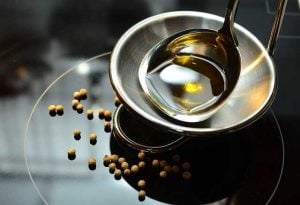
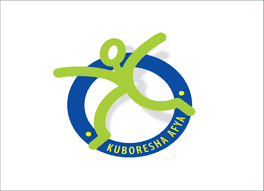
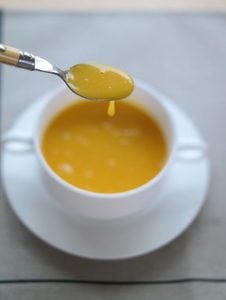
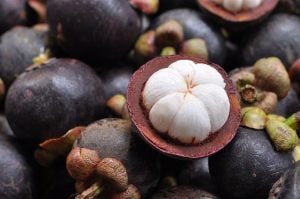

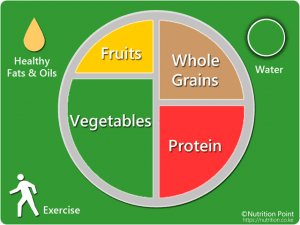
How long can one preserve blue band bread spread margarine in the refrigerator?
Blue Band usually requires no refrigeration. It only needs be stored in a cool dry place and should be okay as long as it has not passed its best before date (approx. 6 months if you check the dates on the pack). So I suppose it should be safe to refrigerate within this period.
Brilliantly researched and articulated article. Thank you!
You do not, however, mention the desecration of the rain forest to plant and harvest monoculture palm oil. When is there likely to be an “Orangutan Friendly” Blue Band. No product with palm oil should be exempt from scrutiny, particularly if it is owned by a big multo national company like Unilever who despite all their philanthropy, still have a lot to answer for in terms of consequences if their bottom line.
You also accept unchallenged the claim (Propaganda) that saturated fats raise bad colesterol and are therefore bad for you. Do you have a scientific peer reviewed paper that backs that up? and if so, would you mind also sharing peer reviewed papers that prove that prior research on this has since been disproven? As is claimed in the book “The diet Myth” by Tim Spector and “Keto Clarity” by a Jimmy Moore.
????????????
Thank you for the kind words. I’m aware of the negative effects the Palm Oil industry is having on the rainforests but not too well to comment on it. Nevertheless, it’s completely unacceptable and I agree, some action ought to be taken to stop the clearing of the rainforest and not just for the Orangutans but also the farmers themselves, as the likely long-term side-effects of this destruction may only endanger their homes if not their livelihoods despite it being a lucrative deal at the moment.
As for the issue on saturated fats, that’s a very divisive subject that I deliberately chose not to delve into and merely glossed over it when I mentioned butter is making a comeback. I don’t have studies for the assertion that saturated fats raises cholesterol as I chose to stick to what is currently recommended by our health organs rather than be contradictory. However, its good that you brought it up. I believe this is the kind of topic that calls for individual scrutiny as there are a lot of opposing views coming from different entities, be they researchers, health organizations or government bodies.
My philosophy on this kind of matters, and pretty much nutritionally, is to err on the side of what is practical. In this case, I believe one will or has little to worry about cholesterol if:
*they’re taking a nutritionally diverse diet (“balanced diet”) while minimizing or cutting out completely what has been irrefutably established as a risk factor (e.g transfats)
*their energy intake is well adjusted for their energy output,
*they’re physically active
*they have no underlying health conditions, family history or medications that put them at risk of high cholesterol; basically all uncontrollable factors that may put them at risk of having high LDL or low HDL.
This works for me and I believe it would for a large segment of the populace that has no time to sift through let alone the expertise to adjust their diets and lifestyles appropriately to whatever conflicting research is coming out every other day. Such is the case with Keto Diet, which, despite having a science to back its high fat, low carb diet, you get the sense some people may not follow it to the book and may essentially approach it as a “fad diet” rather than something to integrate sustainably into their lifestyle.
I suppose what I’m trying to say is that, while their may be little merit as to saturated fat being a risk factor for cholesterol, I believe that assertion may somewhat be “helpful” for people who are not too keen about how their diet, in light of our modern lifestyles, ultimately affects their health.